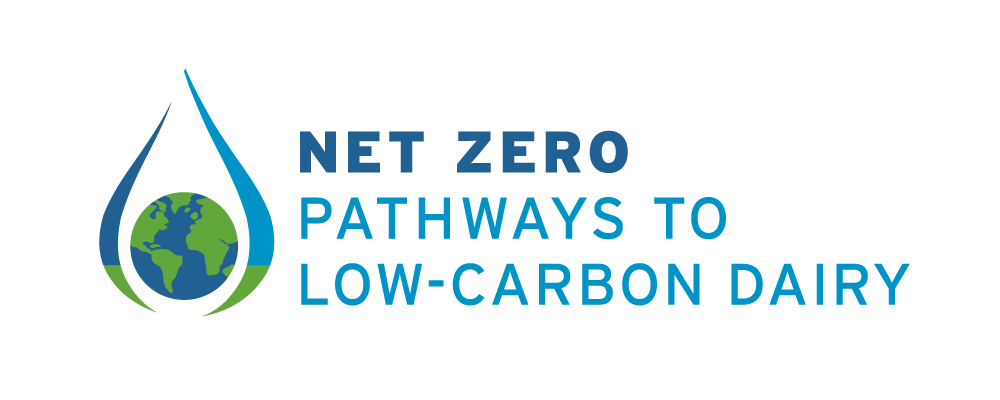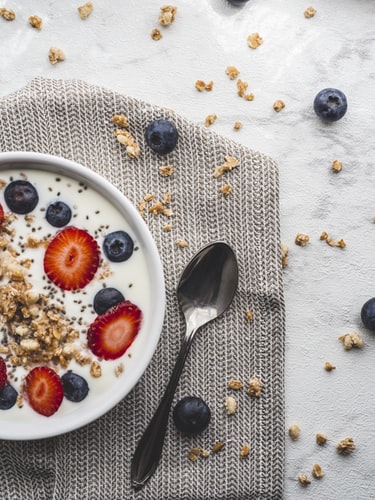GDP Bulletin March / April 2021
NET ZERO, Pathways to Low-Carbon Dairy Initiative to Launch Later this Year
Agriculture has a responsibility to reduce its impact on the environment. While dairy is responsible for less than 3% of man-made GHGs globally, there is more the sector can do to improve the health of our planet and create a sustainable world for everyone.
That’s why GDP, in collaboration with the UN Food and Agriculture Organization (FAO) and International Dairy Federation (IDF), are leading the development of NET ZERO, Pathways to Low-Carbon Dairy (NZP).
NZP will:
- Engage global stakeholders to initiate a sector-wide dialogue with industry leaders, climate experts and others to identify how the sector can contribute to the implementation of the Paris Agreement.
- Work with the global research community to analyze the potential for different practices/technologies across farming systems.
- Establish a Champions Network of companies/associations/countries already taking climate action
- Develop cooperation models and pathways for the developed and developing worlds.
- Create a Methodology and Pathways Guide of practical actions.
- Track and measure progress globally via the Dairy Sustainability Framework, utilizing FAO’s models for carbon accounting.
- Demonstrate how dairy creates resilient, enduring economies and transforms lives.
- Show that nutritious dairy foods, so important in the fight to reduce hunger and malnourishment, have an important role in Responsible and Sustainable Food Systems.
Current status
A technical feasibility study is currently underway, led by the Global Research Alliance on Agricultural Greenhouse Gases (GRA), with funding and support from GDP, FAO, New Zealand Agricultural Greenhouse Gas Research Centre (NZAGRC) and Scotland’s Rural College (SRUC).

Simultaneously, GDP continues to consult about the initiative with a broad range of stakeholders, from the dairy sector, governments, NGOs/Civil Society, , inter-governmental agencies, academia, other livestock group and with financial institutions including, commercial banks, development agencies, donors and foundations.
NZP has been well received and formal endorsement continues to grow. In addition to the organizations listed above, supporters include:
· Dairy Sustainability Framework (DSF)
Next Steps
NZP will launch in advance of the upcoming 2021 UN Food Systems Summit and the 26th UN Climate Change Summit COP26 to proactively position dairy as a vital and component of sustainable food systems.
For questions: Info@GlobalDairyPlatform.com
New CFS Voluntary Guidelines Support Role of Dairy in Healthy Diets
After a multi-year process, the UN Committee on World Food Security recently adopted Voluntary Guidelines on Food Systems and Nutrition (VGFSyN). The VGFSyN are designed to contribute to achieving sustainable food systems and improved nutrition globally while supporting nutritious diets that are accessible, available, affordable, safe, and of adequate quality and quantity. The Guidelines are important not only because they represent general agreement among UN member states on what global food systems should look like moving forward, they also may become a blueprint for potential policy recommendations leading up to and following the UN Food Systems Summit.
GDP and IDF participated throughout the process, encouraging an evidence-based and balanced approach with regards to livestock, dairy and dairy nutrients. This participation helped ensure that language reinforcing the important role of dairy in healthy diets and sustainable food systems was included in the VGFSyN.
For questions: Info@GlobalDairyPlatform.com

GDP Making Dairy’s Voice Heard
During UN Food Systems Summit
During UN Food Systems Summit
GDP is working closely with IDF to ensure dairy’s positions are represented throughout the UN Food Systems Summit (FSS), an event designed to accelerate the delivery of the Sustainable Development Goals by 2030.
Billed as the “People’s Summit,” FSS is bringing together key stakeholders from science, business, policy, healthcare, government, academia, civil society, farmers, indigenous people, youth organizations, consumer groups and activists to potentially transform the way the world produces and consumes food.
GDP is actively engaged in the process. Multiple training sessions have been conducted with hundreds of Social Media Mobilizers and GDP Dairy Ambassadors around the world to provide tools for them to be involved and advocate for dairy. GDP and IDF submitted four “Game Changer” solutions for consideration by the Summit, including: Net Zero, Pathways to Low Carbon Dairy; Dairy Nourishes Africa; Dairy Sustainability Framework and School Milk Programmes. Response to these solutions have been positive.
In addition, GDP and a number of international livestock organizations are meeting directly with Summit organizers, including the Special Envoy and leaders of each of the five individual action tracks, to reinforce the benefits of livestock systems and the vital role they play in sustainable food systems.
GDP was previously appointed to the Private Sector Guiding Group for the summit.
For questions: Info@GlobalDairyPlatform.com
Dairy Sector – A Snapshot

1 billion people strong

600 million people living on farms

400 million additional people are supported by the full time jobs that are created in support of dairy farming

240 million people are employed, directly or indirectly, in the dairy sector

133 million dairy farms






